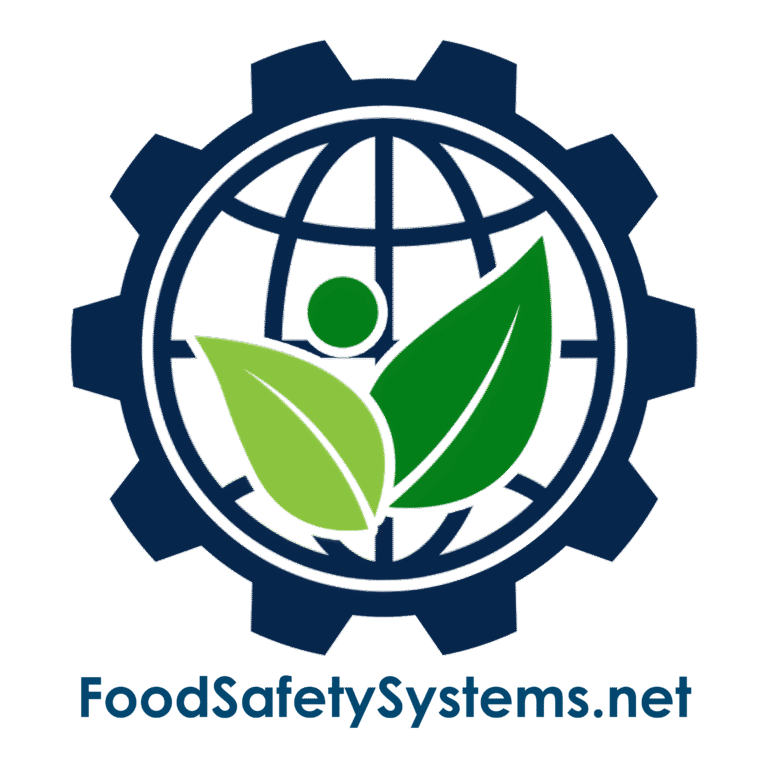Verification & Validation of the HACCP Plan

Aligned with HACCP Principles – Codex Alimentarius & 21 CFR Part 117
Requirement Overview
Under HACCP systems, both verification and validation are required to ensure that the food safety plan is scientifically sound, properly implemented, and consistently effective.
Validation confirms the plan will control identified hazards effectively.
Verification confirms the HACCP plan is being followed correctly and is functioning as intended on an ongoing basis.
These processes are essential for compliance with U.S. FDA regulations (21 CFR 117.165), GFSI schemes (e.g., SQF, BRCGS), and Codex HACCP principles.
Aligned with BRCGS for Storage & Distribution Issue 4 – Clause 4.3.1 & 4.3.3
Requirement Overview
BRCGS for Storage & Distribution requires that products moved via cross-docking are traceable and controlled at all times, even when they are not held in storage for extended periods.
Clause 4.3.1: “The company shall ensure that traceability is maintained at all stages, including during cross-docking operations.”
Clause 4.3.3: “Procedures shall be in place to ensure that all products handled, including those not stored on-site, remain under control and are not subject to contamination or substitution.”
Cross-docking operations must not compromise product traceability, safety, or integrity. Even with minimal handling and temporary presence, each product must be accurately identified, documented, and protected.

Key Compliance Objectives
-
✓ Validate control measures to ensure they prevent or reduce hazards
✓ Verify that all HACCP procedures are implemented correctly
✓ Maintain detailed records of checks, tests, and reviews
✓ Identify and correct deficiencies in a timely manner
Step-by-Step Compliance Implementation
1. Validate the HACCP Plan
-
When to Validate:
-
• During initial plan development
• After major product, process, or equipment changes
• After system failure or recall events
Validation Activities Include:
-
• Scientific data or regulatory guidance to support CCPs
• Third-party studies or internal challenge tests
• Review of process capability and equipment performance
Evidence to Maintain:
-
• Scientific references and regulatory citations
• Internal testing or validation studies
• Signed validation summary report
- • During initial plan development • After major product, process, or equipment changes • After system failure or recall events
- • Scientific data or regulatory guidance to support CCPs • Third-party studies or internal challenge tests • Review of process capability and equipment performance
- • Scientific references and regulatory citations • Internal testing or validation studies • Signed validation summary report
2. Verify Ongoing Implementation
-
Verification Tasks:
-
• CCP monitoring record review
• Calibration of monitoring instruments
• Internal audits of HACCP records and procedures
• Corrective action tracking and review
Frequency:
-
• Daily/weekly: record checks, equipment calibration
• Monthly/quarterly: internal audits
• Annually: comprehensive HACCP plan review
Evidence to Maintain:
-
• Verification logs or checklists
• Calibration certificates
• Audit reports and non-conformance logs
• Corrective action verification records
- • CCP monitoring record review • Calibration of monitoring instruments • Internal audits of HACCP records and procedures • Corrective action tracking and review
- • Daily/weekly: record checks, equipment calibration • Monthly/quarterly: internal audits • Annually: comprehensive HACCP plan review
- • Verification logs or checklists • Calibration certificates • Audit reports and non-conformance logs • Corrective action verification records
3. Review and Update the HACCP Plan
-
Triggers for Review:
-
• New ingredient or supplier
• Process or formulation changes
• Regulatory or scientific updates
• Customer or audit findings
Annual Review Should Include:
-
• Effectiveness of existing controls
• Analysis of deviations and trends
• Training adequacy for CCP operators
Evidence to Maintain:
-
• HACCP review report with revision notes
• Updated process flow diagram or hazard analysis
• Training records and updated SOPs
- • New ingredient or supplier • Process or formulation changes • Regulatory or scientific updates • Customer or audit findings
- • Effectiveness of existing controls • Analysis of deviations and trends • Training adequacy for CCP operators
- • HACCP review report with revision notes • Updated process flow diagram or hazard analysis • Training records and updated SOPs
Common Audit Findings & Recommended Fixes
| Audit Finding | Recommended Action |
|---|---|
| No validation data for CCPs | Provide scientific or technical justification for control measures |
| Incomplete verification records | Maintain logs of daily reviews, calibrations, and internal audits |
| Annual review not conducted | Schedule documented annual plan review and sign-off |
| Corrective actions not verified | Ensure all CAPAs are reviewed and closed with documented evidence |
Auditor Verification Checklist
Expect auditors to review:
-
• Validation documentation and scientific support
• Monitoring record checks and signatures
• Internal audit and verification schedule
• Corrective action records and follow-up verification
• Evidence of annual HACCP plan review and update
Implementation Roadmap
Build and Validate
-
✓ Use scientific data to justify CCPs and limits
✓ Validate process steps and critical control parameters
Verify and Monitor
-
✓ Review logs, calibrate tools, and audit HACCP compliance
✓ Confirm corrective actions are complete and effective
Review and Improve
-
✓ Conduct annual HACCP reviews
✓ Revise plan based on internal findings or external changes
Why This Matters?
-
✓ Confirms your HACCP plan is not just written but working
✓ Reduces the risk of undetected hazards or ineffective controls
✓ Strengthens regulatory and audit readiness
✓ Builds internal confidence in your food safety system
Support Tools Available
Food Safety Systems provides:
-
✓ HACCP validation and verification log templates
✓ Internal audit forms and schedules
✓ Scientific reference sheets for common CCPs
✓ Training materials for QA and CCP monitors
Privacy Policy | Terms of Service
Powered by Consultare Inc. Group, A Compliance Company







